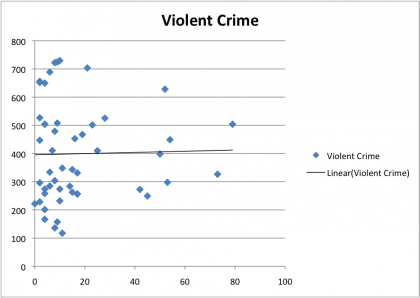Although there will likely be no formal ruling from the Supreme Court on the McDonald case for several months, the case is effectively finished for the petitioning and responding parties. It is in the hands of the nine Justices, and is theirs to decide. This makes a good time to reflect on the case, and look over the transcript in more detail, try to read the tea leaves a little, and share impressions.
The most surprising thing to me was how fast the Court, and in particular Justice Scalia and Chief Justice Roberts, put the kibosh on the Privileges or Immunities argument. Not so much because I expected we’d win the day with P or I, but because it seemed in taking McDonald over the NRA case, the court likely wanted P or I argued to some degree. That would appear to not be the case. Perhaps some light will be shed on their reasoning in the opinion, with Thomas being the Justice to watch there, but we may never know why the court took the case it did. I don’t think Alan Gura was wrong in bringing up P or I. It was reasonable to believe the Court wanted to hear that, and this was really the prime opportunity to get the court to rethink its redaction of Privileges or Immunities from the Fourteenth Amendment. Gura had to deal with some pretty rough questioning, but he held it together, and make an excellent case.
Clement’s argument adequately and adeptly covered the easier due process argument. Clement did not seem to face as much questioning from the Justices, I suspect because due process arguments just aren’t as controversial, and are better understood by the justices. The main thread that seemed to be brought here was the liberal justices inquiring about partial incorporation, or as the math geek in me wants to call it, Incorporation By Parts. The idea would seem to be you incorporate part of the right, but leave the rest for another day, or perhaps decline to do it at all. The justification for this is that we’ve incorporated, partially, the Fifth Amendment, with a different standard applying to the states and feds. This could be a potential danger for us when the opinion comes down. We could still have a victory, but on weak terms. That’s not what we want. Fortunately, I think the respondents helped us out there.
James Feldman represented the City of Chicago, who seemed to so thoroughly tie his hands, that they will likely see their worst nightmares realized. The Heller dissenting justices seemed to desperately want Feldman to grab one of their life buoys, and come on board the USS Incorporation by Parts, which Feldman was having none of. It’s very difficult to argue an untenable position, but Feldman tried, I think largely unsuccessfully.
One final matter, I had disagreed with NRA-ILA’s Motion for Divided Argument in this case, and my disagreements were expressed more strongly in private correspondence than was indicated here publicly. Without meaning to detract any from Alan Gura’s performance and arguments, and also retaining hope that in the future there will be a stronger spirit of cooperation, respect and communication in any future cases we’re arguing, I was glad Paul Clement was up there, and I will freely admit here, and to the people I corresponded with, that I was wrong about many of my concerns. Overall, the strong performance on our side by both Alan Gura and Mr. Clement made a strong case for victory. I’m still going to keep my fingers crossed, and I suspect everyone reading this will as well, but I don’t think anyone has anything to feel glum about. I want to again thank everyone who was involved in this case, and who put it together, briefed, moot courted, and ultimately argued it. As I said before, we’re very fortunate to have such competent and talented advocates.


